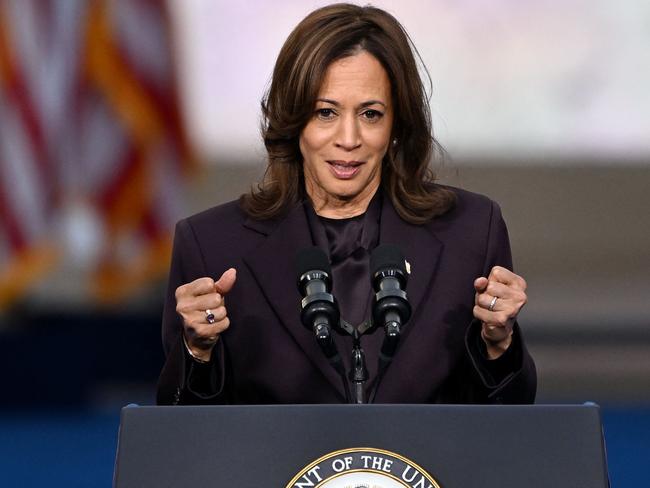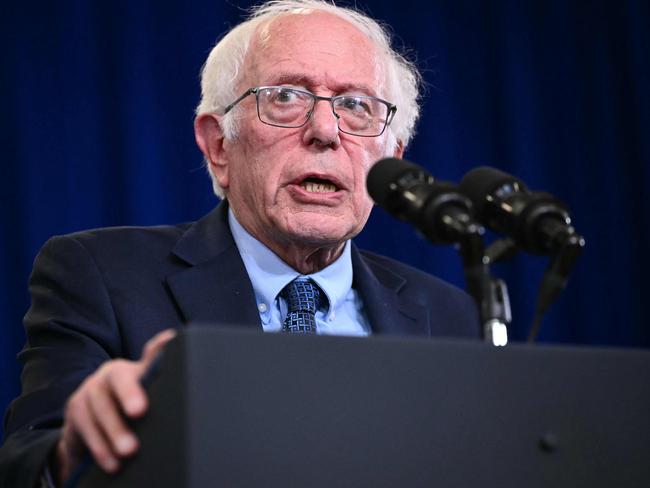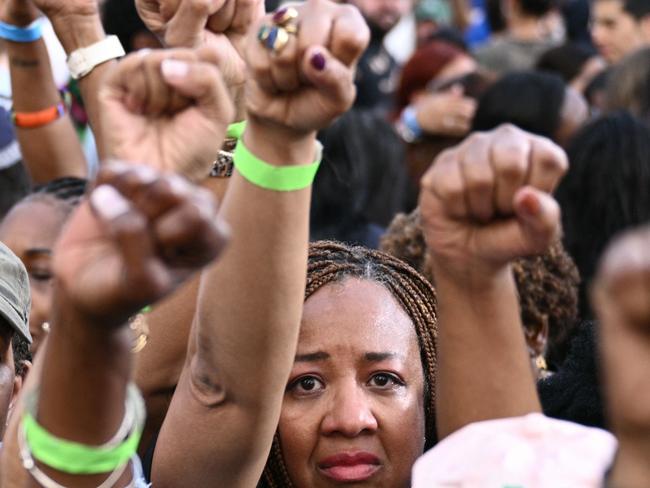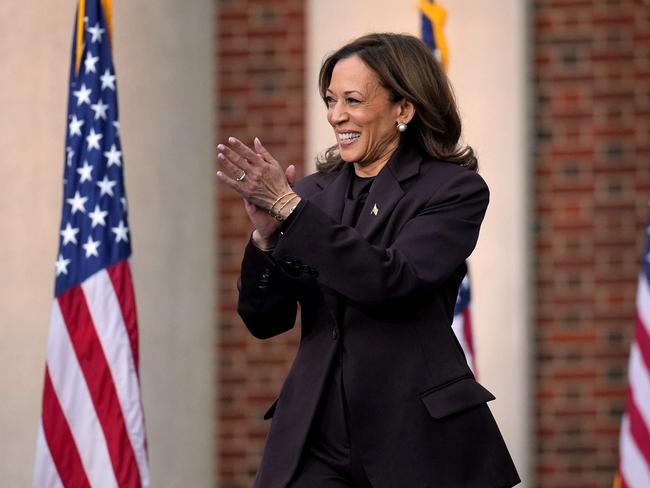Bro vote: How Donald Trump crushed Kamala Harris
Donald Trump’s crushing victory over Kamala Harris has reshaped the demographic divides in America, with one generation really backing him.
World
Don't miss out on the headlines from World. Followed categories will be added to My News.
Donald Trump’s crushing victory over Kamala Harris has reshaped the demographic divides that have decided American presidential elections for a generation.
The former president made stunning inroads in the Democratic coalition, enabling him not only to sweep the battleground states but to take huge chunks out of the Vice President’s advantage in her party’s strongholds, setting up a rare popular vote victory as well.
This is how he did it, based on exit poll interviews with 22,205 voters conducted by Edison Research for American news outlets including ABC, CBS, CNN and NBC.
RACE AND ETHNICITY
Democrat presidential candidates have long relied on huge advantages with Black and Hispanic voters to run up the numbers against their Republican opponents.
But Mr Trump up-ended the race by claiming the support of one in three voters of colour.
This shift was most stark among Hispanic voters, 46 per cent of whom supported the former president while 52 per cent backed Ms Harris. Mr Trump won Hispanic men by 10 points.
Four years ago, Mr Trump lost among Hispanic voters – who make up 12 per cent of the electorate – by a whopping 33-point margin.
He also won the support of one in five Black men, a shift that was less pronounced than Republican strategists had expected. Nevertheless, it cut Ms Harris’s margin among that group to 56 points, compared to 60 points in the 2020 election and 69 points in 2016.
AGE
No age group voted more strongly for Mr Trump than Gen X, with 54 per cent of those aged 45 to 64 supporting the Republican.
Among Americans who cast a ballot who were aged over 65, both candidates were tied on 49 per cent. Ms Harris made solid gains among older voters, a demographic that typically favours Republicans, perhaps because of her taxpayer-funded in-home care policy.
She also retained a lead of 54 per cent to 43 per cent among voters aged 18 to 29.
But Joe Biden won this age group by 24 points over Mr Trump four years ago, with the Republican achieving significant progress among young men by appearing on popular podcasts – often recommended by his 18-year-old Barron – including Joe Rogan’s show.
GENDER
This was always set to be the “boys versus girls” election. The surprise, in the end, was that women animated by the abolition of the federal right to abortion could not help Ms Harris overpower Mr Trump’s intense focus on getting out the so-called “bro vote”.
She was backed by 53 per cent of women, with 45 per cent supporting Mr Trump. But he won white women – who make up 37 per cent of the electorate – by eight points. And he won white men – who make up 34 per cent of the electorate – by a massive 23 points.
Overall, Mr Trump had an advantage of 55 per cent to 42 per cent among male voters.
EDUCATION
As he did in his first two presidential campaigns, Mr Trump ran up the numbers among voters who did not have university degrees. This group makes up 57 per cent of the total number of Americans who cast a ballot, and he was ahead 56 per cent to 42 per cent.
Ms Harris, by contrast, won university graduates by 55 per cent to 42 per cent.
Education is now one of the most important dividing lines in American politics.
LOCATION
The final electoral map after the presidential election was mostly a sea of red, with dashes of blue on the east and west coasts. This was reflective of Mr Trump restoring his dominance in rural areas while Ms Harris relied heavily on urban centres.
The Republican claimed 64 per cent of rural voters – with just 34 per cent backing Ms Harris – which mirrored his 2016 advantage that Mr Biden had cut in half four years ago.
Ms Harris’s urban advantage, 59 per cent to 38 per cent, held firm for the Democrats.
But in the biggest demographic by location, the 51 per cent of voters who lived in the suburbs, Mr Trump held a four-point edge which represented a six-point swing from 2020.
ANALYSIS: WHY HARRIS FAILED TO SELL THE AMERICAN DREAM
When we fight, we win. That’s what Kamala Harris told her campaign team in her first speech as the Democratic presidential candidate. How, then, to explain her crushing defeat?
“Sometimes the fight takes a while,” the Vice President said to her tearful supporters.
“That doesn’t mean we won’t win … The important thing is don’t ever give up.”
“This is not a time to throw up our hands. This is a time to roll up our sleeves.”
The day after the night before, in the moments before Ms Harris delivered her concession speech, pundits were speculating that the 60-year-old might want to run again in four years.

She did nothing to tamp that down. Indeed, she signalled she was keen to do just that.
Anyone immediately dismissing this would do well to remember how Republicans felt about Donald Trump on January 7, 2021, after his supporters invaded the US Capitol. He was a disgraced outcast – now he is on his way back to the White House, more popular than ever.
But it is the scale of his victory – a sweep of the battleground states, the first popular vote victory for a Republican in 20 years, and likely control of both chambers of Congress – that should spell the end of any thoughts Ms Harris might be having about trying her luck in 2028.
Americans are simply no longer buying what the Democrats are selling. They need a new product and they need a new salesperson.
“It should come as no great surprise that a Democratic Party which has abandoned working class people would find that the working class has abandoned them,” independent senator Bernie Sanders said in a blistering statement.
“First, it was the white working class, and now it is Latino and Black workers as well.”

It is also young Americans, many of whom have only ever known a political landscape where Mr Trump is an ingrained feature, not a terrifying bug. These shifts – across all divides of age, gender, race and class – have catastrophically up-ended the Democratic coalition.

Piecing it back together will not be possible with the tactics and strategies of Harris, or of Joe Biden or Barack Obama. It is time – evidently it is well past time – for the party to be placed in the hands of what it has long boasted is a deep and impressive slate of younger leaders.

People like Josh Shapiro and Gretchen Whitmer, the popular governors of Pennsylvania and Michigan, have shown how successful Democrats can be when they knuckle down on the kitchen table problems of their constituents and ignore the progressive fixations of the time.
Mr Trump will not be on the ballot in 2028 but Trumpism will endure. Whoever takes the reins for the Democrats will need an alternative.
More Coverage
Originally published as Bro vote: How Donald Trump crushed Kamala Harris




